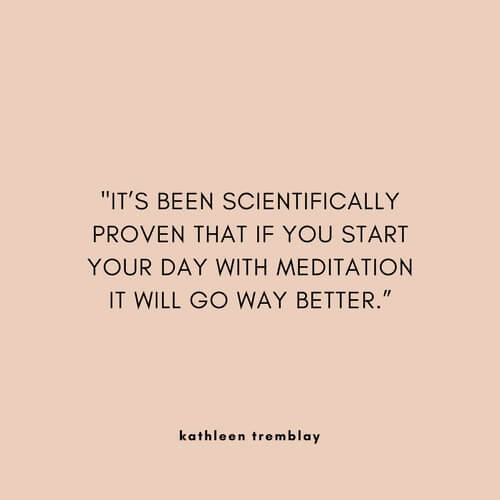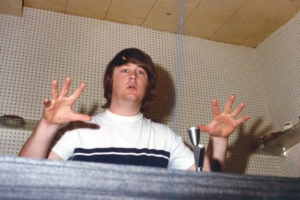[image_with_caption text=”Photo by Shutterstock” image=”http://everandivy.wpengine.com/wp-content/uploads/2017/09/meditation-post.jpg”]When you hear the word meditate, you may think of a robed man in a Himalayan temple. Or perhaps you think of an angular women sitting in lotus with her fingers on the edge of her knees channeling peace and tranquility. You would not be wrong on both accounts, but these days you should also include your Uber driver, rock stars, and your Aunt Betty when classifying your stereotypes of the typical meditator.
Let’s face it, Meditation is trendy. Everybody’s doing it.
Or are they just talking about wanting to do it? Who doesn’t want a more stress free existence? Recent studies have show meditation to help decrease anxiety, depression, some GI disorders, chronic pain, high blood pressure and even Attention Deficit Disorder (ADD). It can help aid in sleep disorders and post traumatic stress and the list goes on.
In a 2014 study over an 8-week period, a Harvard-affiliated team of researchers based at Massachusetts General Hospital relied MRI scans to track changes in the brain. The results showed that meditation produced significant increase in grey matter of the hippocampus. The hippocampus is the part of our brain that is responsible for compassion, empathy and self-awareness. All of the stuff that makes us good people and makes us feel good as people.

“Although the practice of meditation is associated with a sense of peacefulness and physical relaxation, practitioners have long claimed that meditation also provides cognitive and psychological benefits that persist throughout the day,” says study senior author Sara Lazar of the MGH Psychiatric Neuroimaging Research Program and a Harvard Medical School instructor in psychology. In other words, it’s been scientifically proven that if you start your day with meditation it will go way better.
Now that I have convinced you of the benefits, you may be asking how you get started. Or maybe you are the try before you buy type. How do you go about just testing out the practice? Here are 5 tips to getting started for the meditation rookie:
Use a guided meditation App.
This is a great place to start because you have a soothing voice in your ear guiding you through the process and, in most cases, helping you learn how to get the best out of your time meditating. Check out my review post on the Top 5 Meditation Apps.
Pick a comfortable spot.
It’s hard to do anything when you are not comfortable especially emptying your mind and focusing on your breath. You don’t want to spend your precious meditation minutes focused on why your back hurts. Use pillows or even a chair in a quiet place to get comfortable.
Meditate at the same time everyday.
Meditating at the same time everyday makes it part of your routine and you will more likely to build a daily practice. Many experienced meditators practice first thing in the morning when the mind is most clear and the belly is empty. It provides a great way to start off the actions of the day, however trivial or monumental, in a mindful way.
[image_with_caption text=”Photo by Shutterstock” image=”http://everandivy.wpengine.com/wp-content/uploads/2017/09/meditation.jpg”]
If it’s not working for you, change it. The sooner the better. If you are not connecting with your guided meditation app or your spot is not working or you find yourself looking at the stock market exchange or nursing your baby more in the morning than meditating, change it. Find a new app, new time or new place.
Keep trying and you will eventually find the formula that works for you.
Let go of control. We can’t control what thoughts pop into our head, but we can accept the thoughts and move on.
Meditation is about acceptance and acknowledgment of the moment – not control. Your practice will be much better if your remember this from the very beginning.
References
Chen KW, Berger CC, Manheimer E, et al. Meditative therapies for reducing anxiety: a systematic review and meta-analysis of randomized controlled trials. Depression and Anxiety. 2012;29(7):545–562.
Brook RD, Appel RJ, Rubenfire M, et al. Beyond medications and diet: alternative approaches to lowering blood pressure: a scientific statement from the American Heart Association. Hypertension. 2013;61(6):1360–1383.





